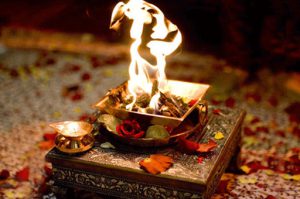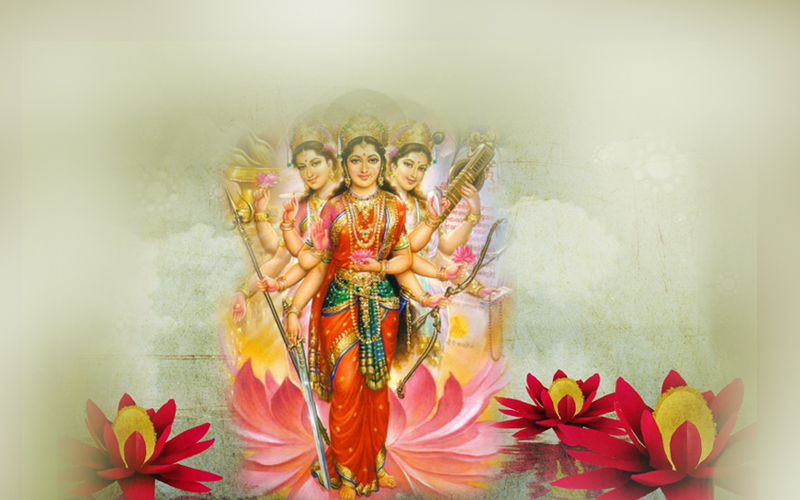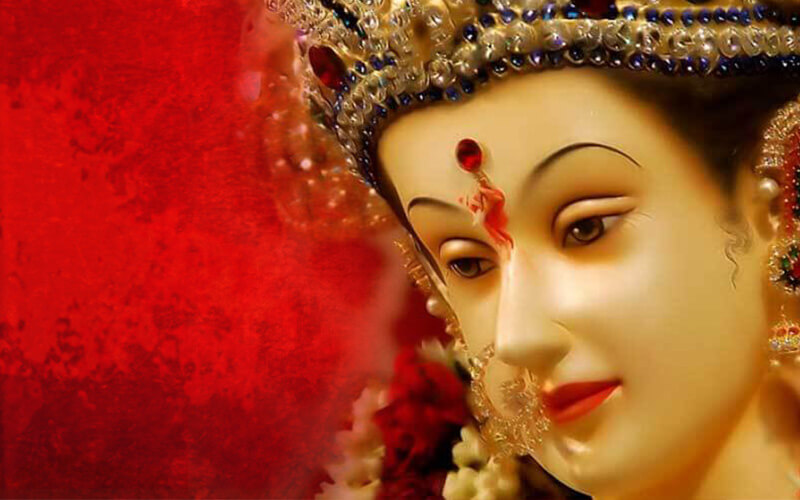
India’s ageless culture brims with a number of spiritual facets. Mahalaya Amavasya is one of the most essential and auspicious days for those who seek to offer gratitude to their ancestors called Pitru. The dark fortnight of September-October is known as the Mahalaya Paksha or the fortnight particularly holy for offering oblations to one’s departed ancestors. The last day of this period, the new moon day, is considered to be the most important day in the year for performing obsequies and rites. Amavasya Tithi Shraddha is performed for those deceased family members who departed on Amavasya Tithi, Purnima Tithi and Chaturdashi Tithi.
The Pitra Paksha fortnight is a similar time of heightened awareness as the energies of disembodied beings hangs alive in the air during this time. Departed souls are roaming free from the Pitru Loka to receive offerings on earth. Prayer and rituals during this fortnight have special merit and on Sarvapitri Amavasya or Mahalaya Amavasya, the universal day of remembrance, there is scope for everyone to express their gratitude for departed ancestors. ‘Mahalaya’ is made of ‘Maha’ meaning ‘great’ and ‘Alaya’ meaning ‘a place’. Similarly ‘Ama’ of ‘Amavasya’ means ‘together’ and ‘vasya’ means ‘to dwell’. It means It is the great universal period where all the ancestors of families come for accepting the offerings from their families. If a person could not perform Shraddha on Amavasya Tithi, Purnima Tithi and Chaturdashi, he can perform the Sharadha on this day as this great is period suffices to appease the departed. Amavasya Shraddha is also known as Sarvapitra Moksha Amavasya.
It is traditionally an important time for spiritual practices. On new moon day, the moon and the sun exert a combined gravitational pull on earth and the energies of all beings is pulled upwards, giving rise to a heightened awareness.
Even those who die without children can receive oblations given on the Pitra Paksha Amavasya. Anyone who failed to do charity and donations of food and who was, therefore, denied comfort in the Pitri Loka, will benefit by these ceremonies. The deceased whose date of death is not known and whose annual shradh cannot be performed should be remembered on Mahalaya Amavasya.
If you had loved ones whose life was abruptly cut off by violent accidental or unnatural death, they become accessible on Pitra Paksha Amavasya for you to communicate your good wishes. So worship with faith and think of your departed ones with love and gratitude as you make offerings on this day.
You will be providing peace and gati (forward momentum) to the souls when you make offerings and shradh on Mahalaya Amavasya. Doing this also promotes cordial and harmonious relations within the family. You may also experience relief from physical and mental ailments after doing this.
What you can do on this day:
Tarpan at Home
• Offer a tarpan on Mahalaya Amavasya day at home in your puja place. Light a lamp and have ready a palm full of black til, jau grains, white rice, kusha grass and copper pot of water. Keep some blades of kusha grass in your left palm and add rice to this. Now tilt your left palm forward so that the rice falls down the tips of your fingers and slowly pour water from the copper pot and give this daan, thinking of the devtas.
• The second tarpan is offered to the Rishis. Keeping the kusha grass in your left palm, add a handful of jau grains. Keep the water pot in your right hand. Now tilt your left hand sideways so that the jau grains pour outwards through the side of your palm and slowly add water from the pot, offering this to the rishis.
• The third tarpan is offered to the Pitras. Keeping the kusha grass in your left palm, add the black til to this hand. With your right hand, take the water pot. Thinking of all your ancestors/pitras, pour this til offering (tilanjali) from the inside of your palm (the space between your thumb and forefinger) and slowly add water from the vessel to this daan.
You can do additional rounds of tarpan (and tilanjali) for a specific ancestor, uttering their name and thinking of them, as you make the til and water offering.
Pind Daan:
Make an offering of rice balls mixed with black sesame to the crows and animals.
Pitra Bhoj:
Have a small shraadh ceremony on that day by feeding a brahmin. In this food, you can include whatever dish that was the favourite of your departed ancestors.
Read Holy Scriptures:
Reading of scriptures such as Garuda Purana, Agni Purana and stories of Nachiketa and Ganga Avataram are beneficial on this day. You can also conduct recitals of Bhagavata Puran and Bhagvad Gita.
Puja Services:
Perform puja services and make a donation in memory of your dear ones.








